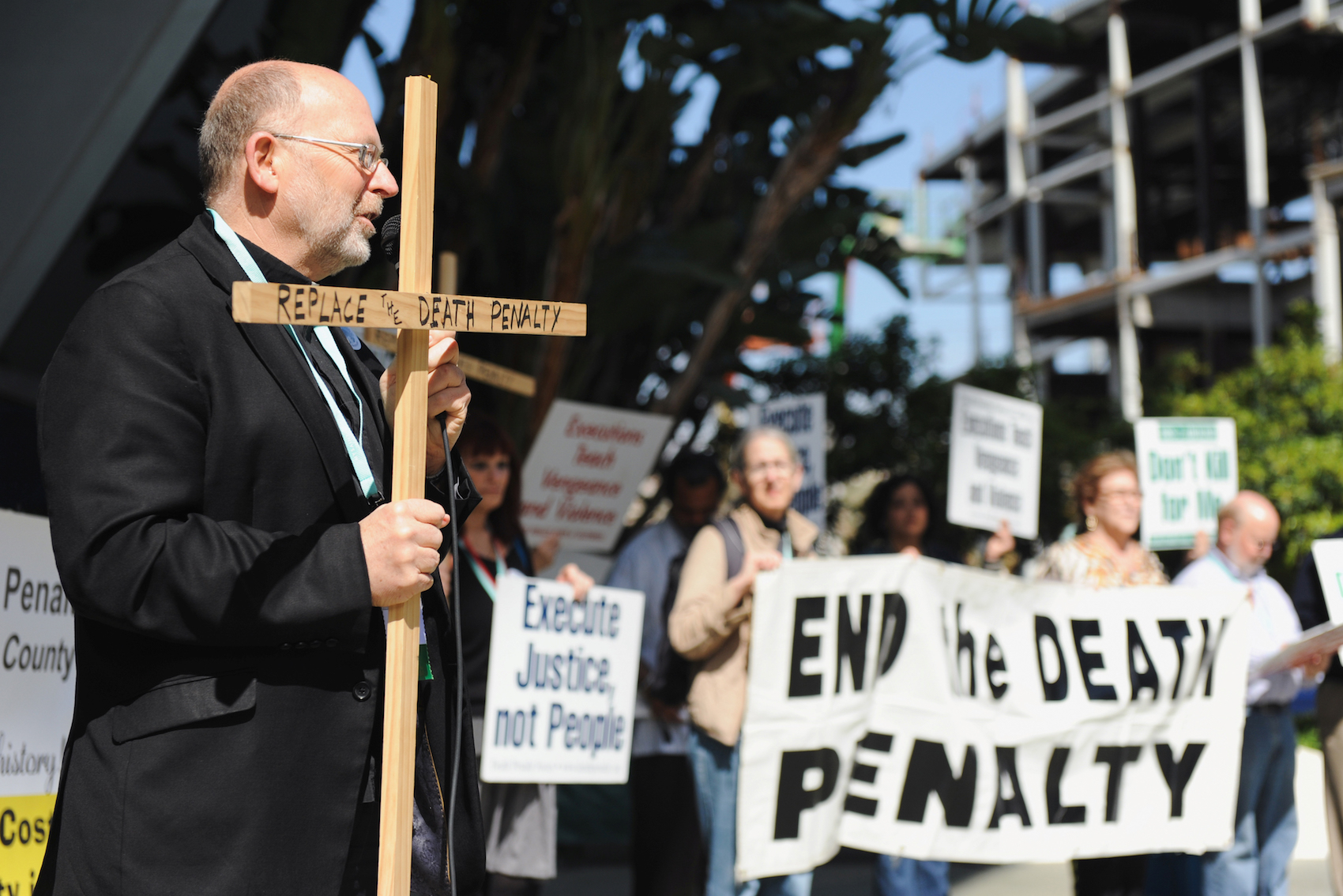WASHINGTON (CNS) — For Stephanie Niedringhaus, it was all about the names.
At some of the prayer vigils for an end of the death penalty in Virginia Jan. 22 — held in locations across the state, including sites where lynchings took place — the names of those killed were read aloud.
Niedringhaus, a Catholic retiree from McLean, Virginia, said this litany of names goes along with what Sister Helen Prejean, a Sister of St. Joseph of Medaille and longtime activist against the death penalty, has stressed about the need to know the names of people who have been executed because not knowing them makes them seem less human.
“As someone who was raised Catholic, the idea that all people are created in the image and likeness of God is a phrase that is indelible in my brain,” she said, adding that executing people makes that notion of God-given human dignity a lie.
Looking at capital punishment from the lens of faith, she said, there isn’t any way “we can say this is OK.”
Niedringhaus, a member of PAX, a Catholic intentional eucharistic community, told Catholic News Service Jan. 25 that her own opposition to the death penalty is “deeply spiritual.” But she knows she is not alone in this, noting that the religious representation at vigils across the state brought together “all these different faith traditions all rooted in justice.”
She took part virtually in the livestreamed prayer vigil in Richmond, Virginia, held near the historical marker for the former state penitentiary where executions took place from 1908 to 1990. The property is now the site of Afton Chemical Co.
Other vigils were held in Alexandria, Roanoke, Danville and Norfolk, organized by the Virginia Interfaith Center for Public Policy and led by local faith leaders as a way to highlight the current movement in the state to abolish the death penalty and to show a connection between capital punishment and the state’s history of racial injustice.
Organizers pointed out that Blacks represent about 19% of the state’s population but make up 34% of those executed in the state.
The gatherings, at noon Jan. 22 , brought about 20 people to each location. In Richmond, participants held up signs against the death penalty and spoke from a microphone competing with the traffic on a busy street alongside them.
“Only on our Virginia Civil War battlefields were there more killings than in this field right behind us,” said Dale Brumfield, representing Virginians for Alternatives to the Death Penalty.
At the vigil in Norfolk at City Hall Plaza, near the city’s jail, Father Jim Curran, pastor of the Basilica of St. Mary of the Immaculate Conception in Norfolk, spoke about Catholic teaching against the death penalty, stressing that Pope Francis has said it is inadmissible “and there can be no stepping back from that position.”
According to the Death Penalty Information Center, Virginia has executed more people in its history than any other state. The state carried out its first execution in 1608. In modern times, since the U.S. Supreme Court reinstated the death penalty in 1976, Virginia follows Texas as the state with the most executions.
Virginia’s previous execution took place in 2017. Currently, two people are on the state’s death row but under proposed legislation, their sentences would be converted to life in prison without parole.
In mid-January, the executive director of the Virginia Catholic Conference, the public policy arm of the state’s bishops, said he was pleased bipartisan support is growing for ending Virginia’s death penalty.
“With our modern and advanced criminal justice system, we have other ways to provide punishment and protect society, without resorting to executions,” said Jeff Caruso, the conference’s executive director. “We hope this will be the year to enact death penalty abolition here.”
In his annual “State of the Commonwealth” address Jan. 13, Virginia Gov. Ralph Northam said he would support a bill just introduced in the General Assembly to abolish the death penalty, including for those persons currently under a death sentence.
He also cited racial injustices in the criminal justice system as a reason to end executions.
The death penalty bill was approved by the Senate Judiciary Committee Jan. 18 and must be approved by the Senate Finance Committee before it can be considered by the full Senate. Companion bills in the House of Delegates are awaiting committee approval.
The day of the prayer vigils, Richmond Commonwealth’s Attorney Colette McEachin said her office supports the bill to abolish the death penalty and her office will not seek any death sentences.
In a statement she said: “The question is not whether someone ‘deserves’ to die because of the depravity of their act, but whether we as a society are so convinced of the infallibility of our decisions that we should sentence an individual to death.”
She also said “death should not be imposed unless society can guarantee that new evidence will never prove that sentence incorrect. That guarantee cannot exist. Life in prison without parole — in effect, being sentenced to die in prison by the community you harmed — is a significant and just punishment.”
If Virginia abolishes the death penalty, it will join 22 other states that no longer use capital punishment. Three states have a moratorium on it.







